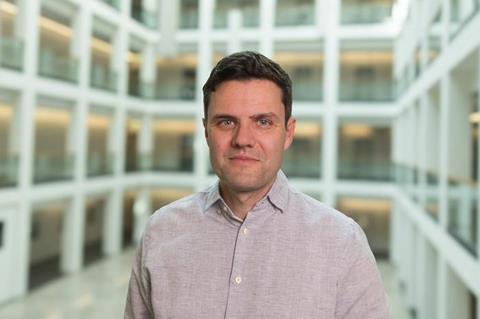Prof. Christian Gaebler, an HIV researcher at Charité – Universitätsmedizin Berlin, has a goal: to develop treatments that cure HIV infection in patients or prompt the immune system to keep the virus in check in the long term, even without medications.

To that end, Gaebler plans to conduct a detailed study of patients who are already living without medication. His research project has now persuaded the European Research Council (ERC), which has awarded him about 1.5 million euros in funding under an ERC Starting Grant.
READ MORE: Study outlines world’s third successful cure of HIV infection after stem cell transplantation
READ MORE: Breakthrough study seeks functional cure for HIV
Advances in HIV treatment allow people with the virus to lead largely normal lives these days. However, they have to continue taking antiretroviral drugs, a special type of medications that suppress viral replication.
“Antiretroviral therapy can’t cure HIV infection because the virus hides inside immune cells,” explains Christian Gaebler, head of a lab at the Department of Infectious Diseases and Critical Care Medicine at Charité and the Berlin Institute of Health at Charité (BIH). “These hiding spots are called viral reservoirs. They explain why the virus resumes multiplying within a few weeks after the medications are discontinued.”
Clearing the virus
There are only a handful of people whose bodies have completely cleared the virus, all of them due to stem cell transplantation. A team of researchers from Charité, Gaebler included, presented one such true case of cured HIV to the medical world just recently, in July. But owing to high risks, stem cell transplantation is not an option for most of those living with HIV, so the virus is still viewed as incurable.
Gaebler aims to change that through the HIV CURE MISSION project. The need is great: The Robert Koch Institute puts the number of people living with HIV in Germany at 96,700 as of the end of 2023, while the Joint United Nations Programme on HIV/AIDS (UNAIDS) estimates about 40 million as the worldwide figure.
Gaebler’s research follows a two-pronged approach. First, he plans to conduct in-depth studies of the cases in which HIV has been cured. Are there immunological traits on the part of either the stem cell donor or the recipient that could have contributed? Or parameters that explain why stem cell transplantation did not lead to a cure in other cases? Second, he plans to study a second group of people living with HIV who are managing without antiretroviral therapy, patients known as “post-treatment controllers.”
Ongoing remission
“There are people with HIV whose immune system keeps the virus in check even though they’ve discontinued antiretroviral treatment,” Gaebler explains. “In those patients, the immune system suppresses viral activity although the virus is still hiding in some cells in the body. Because the virus is still detectable, we don’t refer to these patients as having been cured. Instead, we say they are in ongoing remission.”
Several of these post-treatment controllers who have been in remission for over four years were followed after receiving a new HIV antibody treatment. Gaebler was involved in the phase I trial, whose results were published in 2022. He received the German AIDS Prize for that work last year. “We want to learn from these people,” Gaebler says.
He and his team plan to document exactly how their immune system responds to the virus and which genes in their immune cells and in the virus are active. Because the viral reservoirs pose the biggest obstacle to curing HIV, the researchers will be studying their properties in detail. This is especially important because antibody treatment has been shown to reduce the number of places where the virus can hide.
New approaches
Since antibody treatment is still in its infancy, there are not yet many people who are in remission as a result. However, Gaebler expects their number to increase as larger clinical trials get under way.
“Once we understand the mechanisms that contribute to remission or a cure, we plan to use those findings to develop new approaches to treating HIV that can be used on a broad basis,” Gaebler says. “We do still have a ways to go, but our goal remains to either cure people with HIV or otherwise allow them to live a healthy life without medications.”







No comments yet